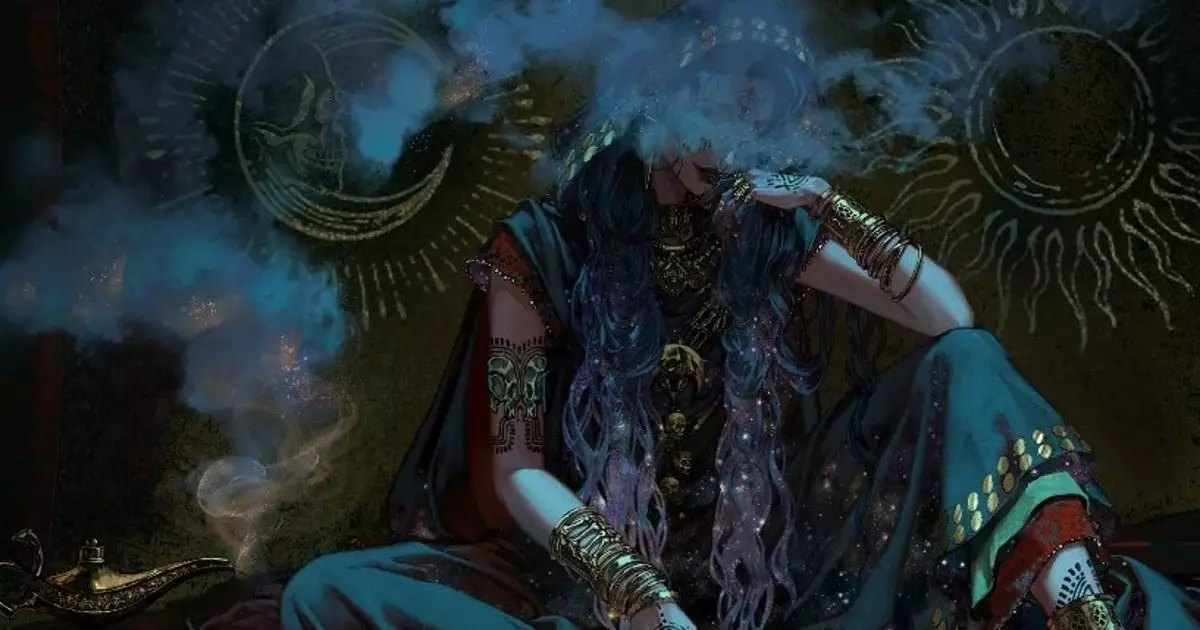Sultan’s Game presents itself as an intriguing amalgamation of strategy, narrative, and darker themes of moral ambiguity. Developed to challenge players’ choices and strategic thinking, it invites a close examination of the interplay between power, desire, and consequence. While it remains a work in progress in the player’s journey of comprehension, this captivating title reveals layers of engagement that provoke thought and discussion. However, the game’s complexity is a double-edged sword; it enthralls as much as it confounds, demanding dedication from those willing to explore its depths.
One cannot discuss Sultan’s Game without acknowledging its exquisite artistry. The visuals marry a vibrant palette reminiscent of Hades and the intricate designs typical of Yoshitaka Amano’s work, engaging players with a feast for the eyes. This is complemented by a soundtrack that artfully transitions between moods to enhance the gaming experience. The aesthetic quality not only captures interest but also sets a tone that resonates with the game’s darker narratives. Each scene beckons players to lose themselves in a world that oscillates between beauty and grotesque moral dilemmas.
The Role of the Sultan: A Character of Contradiction
Central to the gameplay is the disheartening figure of the Sultan, a character steeped in ennui and immense power. The Sultan serves as both a guide and a sinister overlord, establishing a foundation of tyranny against which players will navigate their decisions. The tutorial introduces this complex character as one who partakes in shocking acts of violence and debauchery, leaving players to grapple with morally ambiguous themes right from the outset. The Sultan’s thirst for carnality and bloodshed acts as a catalyst for the game’s core mechanics, revealing an unsettling truth: the characters within this world are more akin to resources than individuals.
As players transition from the tutorial and take up their roles, the game unfolds into an intricate blend of narrative-driven worker placement strategy. Players are met with increasingly challenging dilemmas, needing to balance actions that fulfill card requirements while managing their relationships and reputations. The notion of seven-day deadlines introduces urgency and heightens tension, creating a constant pressure to resolve conflicts and meet objectives.
The resource management system demands more than mere calculation; it requires a consideration of the value of each character while simultaneously weighing their contributions to broader ambitions. This complex network of relationships and objectives intertwines with the player’s decisions, making every choice not only a means to an end but also a commentary on the nature of power and its consequences. The joy of discovery lurks in the depths of player strategy, evolving as they learn how to navigate the inherent chaos of court life.
Narrative Complexity: The Ties that Bind
Delving deeper, the narrative threads weave a rich tapestry of alliances and betrayals, with each character offering opportunities for engagement and evolution. The player must engage in subterfuge, ambition, and manipulation, as they of course cannot shy away from the grim realities of their own ambitions. The intertwining of narrative paths serves as both a reward and a challenge as players navigate through minor stories and side quests, thus unraveling the game’s deeper mysteries.
Moreover, integrating elements like reputation and influence further complicates the landscape, emphasizing the tangled nature of perceived morality in a world focused on survival and ambition. Each interaction, whether it involves espionage or interpersonal dynamics, can potentially alter the game’s flow, allowing for a degree of exploration unique to each playthrough.
Ultimately, Sultan’s Game poses a compelling challenge for those who engage with its unforgiving narrative and intricate mechanics. The game’s marriage of beauty and horror provokes a sense of duality that invites players into a world where every decision carries weight. While the journey may be fraught with complexity, the vibrant ideas and themes presented afford enough depth for a rewarding exploration of ambition and morality. If players remain undeterred by the stark darkness that accompanies many choices, Sultan’s Game promises to be a thoughtful and engaging addition to the strategy genre, capable of leaving a lasting impression on all those daring enough to navigate its treacherous court.


Leave a Reply